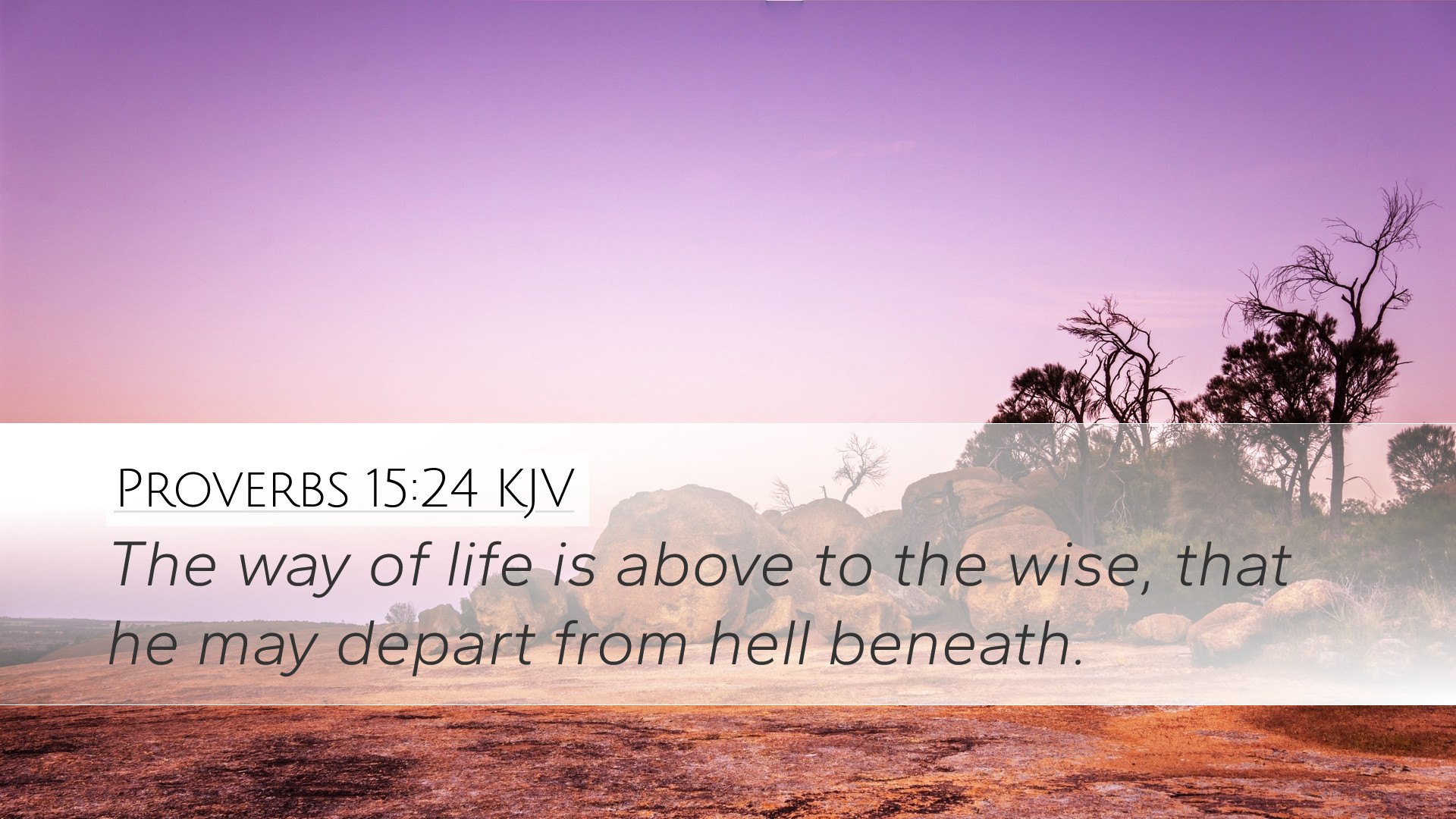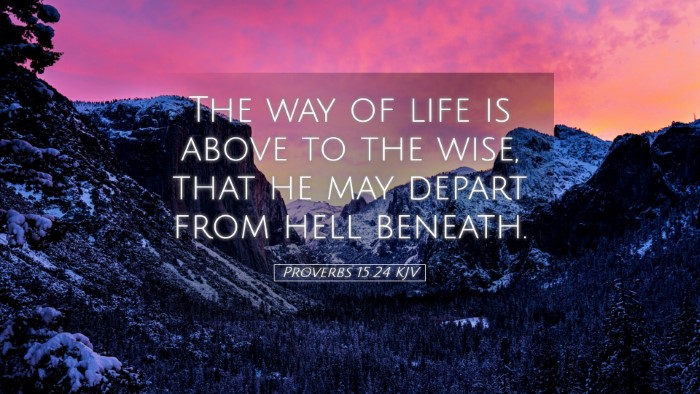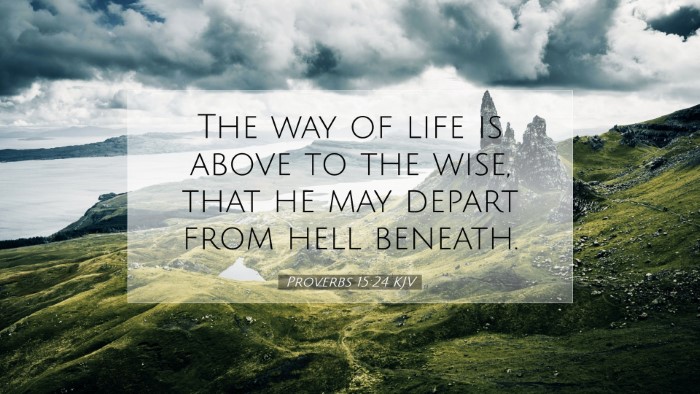Commentary on Proverbs 15:24
Proverbs 15:24 states, "The path of life leads upward for the wise, that he may turn away from hell beneath." This verse beautifully encapsulates the Biblical understanding of wisdom, destiny, and the choices one makes in life. It serves as an excellent focal point for pastors, scholars, and theologians engaged in exploring the underlying truths of scripture.
Introduction
The Book of Proverbs, attributed chiefly to Solomon, is packed with aphorisms that explore moral and ethical dilemmas, providing guidance for wise living. In Proverbs 15:24, the imagery of "the path of life" contrasts sharply with the ominous reference to "hell beneath," inviting a deep examination of these theological concepts.
Interpretative Insights
1. The Duality of Paths
Matthew Henry underscores the significance of the paths we choose. The notion of two paths reflects a common biblical theme: the way of righteousness versus the way of wickedness. He explains that the "path of life" is one characterized by wisdom, which inherently leads to an elevation of one’s spiritual state, drawing one closer to God.
Albert Barnes notes that the "wise" person is one who seeks understanding and makes decisions in alignment with God’s commandments. Adhering to this path results in an ascent that transcends mere earthly existence.
2. Wisdom and Its Rewards
Adam Clarke emphasizes that wisdom not only protects the individual but also directs them toward life. He articulates that the wisdom here is synonymous with a relationship with God, which acts as a safeguard against destruction. This perspective highlights the promise of spiritual elevation and the freedom from moral decay.
Moreover, Clarke elucidates that "upward" suggests a divine elevation: it signifies both a physical and spiritual journey toward maturity and fulfillment in God's plan.
3. The Warning Against Destruction
Henry further complements the interpretation by elaborating on the alternative—the descent into "hell beneath." This phrase serves as a stark warning about the consequences of folly and unwise choices. The fear of hell is not merely a theological assertion but a call to self-examination and reflection on one’s path.
Barnes argues that recognizing the consequences of foolish choices is crucial for anyone seeking wisdom. The recognition of the potential outcomes of one’s life decisions is foundational for pursuing a righteous path.
Theological Implications
1. The Nature of True Wisdom
The verse presents wisdom not simply as knowledge but as an active relationship with God. As Henry articulates, true wisdom manifests in the fear of the Lord, which is the beginning of wisdom (Proverbs 1:7). This respect and awe for God is foundational to making choices that lead to life.
2. The Consequences of Choices
This proverb correlates closely with the overarching themes found throughout Scripture concerning choice and consequence. Clarke observes that wisdom leads to protection from destruction, implying that God provides a means for humans to choose wisely. The emphasis on volition highlights that individuals bear responsibility for their choices, reinforcing the ethical dimension of biblical wisdom.
3. Eschatological Considerations
In viewing "hell beneath," one cannot ignore the eschatological implications. Both Henry and Barnes introduce concepts related to divine justice, asserting that the path one walks in this life influences eternal destiny. This echoes New Testament teachings about the final judgment and the importance of living a life reflective of one's faith.
Practical Applications
For pastors and teachers, Proverbs 15:24 serves as a profound source for preaching. Here are some practical applications:
- Choice and Consequence: Emphasize the importance of choices and the paths they lead to; encourage congregants to evaluate their life directions.
- Wisdom as Relationship: Reinforce the idea that wisdom derives from a close relationship with God and a commitment to His ways.
- Seeking Spiritual Guidance: Encourage individuals to seek counsel from wise mentors and community members who embody biblical principles.
Conclusion
Proverbs 15:24 is a concise yet profound reminder of the paths available to us. The wise choose the upward path, turning away from destruction and embracing life. Through the combined insights of Henry, Barnes, and Clarke, we understand the depth of this verse as it elucidates the nature of wisdom, the seriousness of our choices, and the eternal consequences that follow.
In an age where moral ambiguity often reigns, the clear direction provided by this proverb offers both a warning and an assurance—an invitation to dwell in the wisdom of God and navigate life with divine insight.


